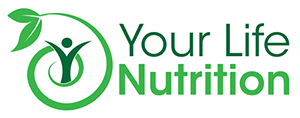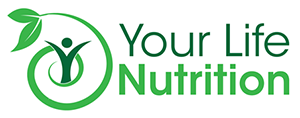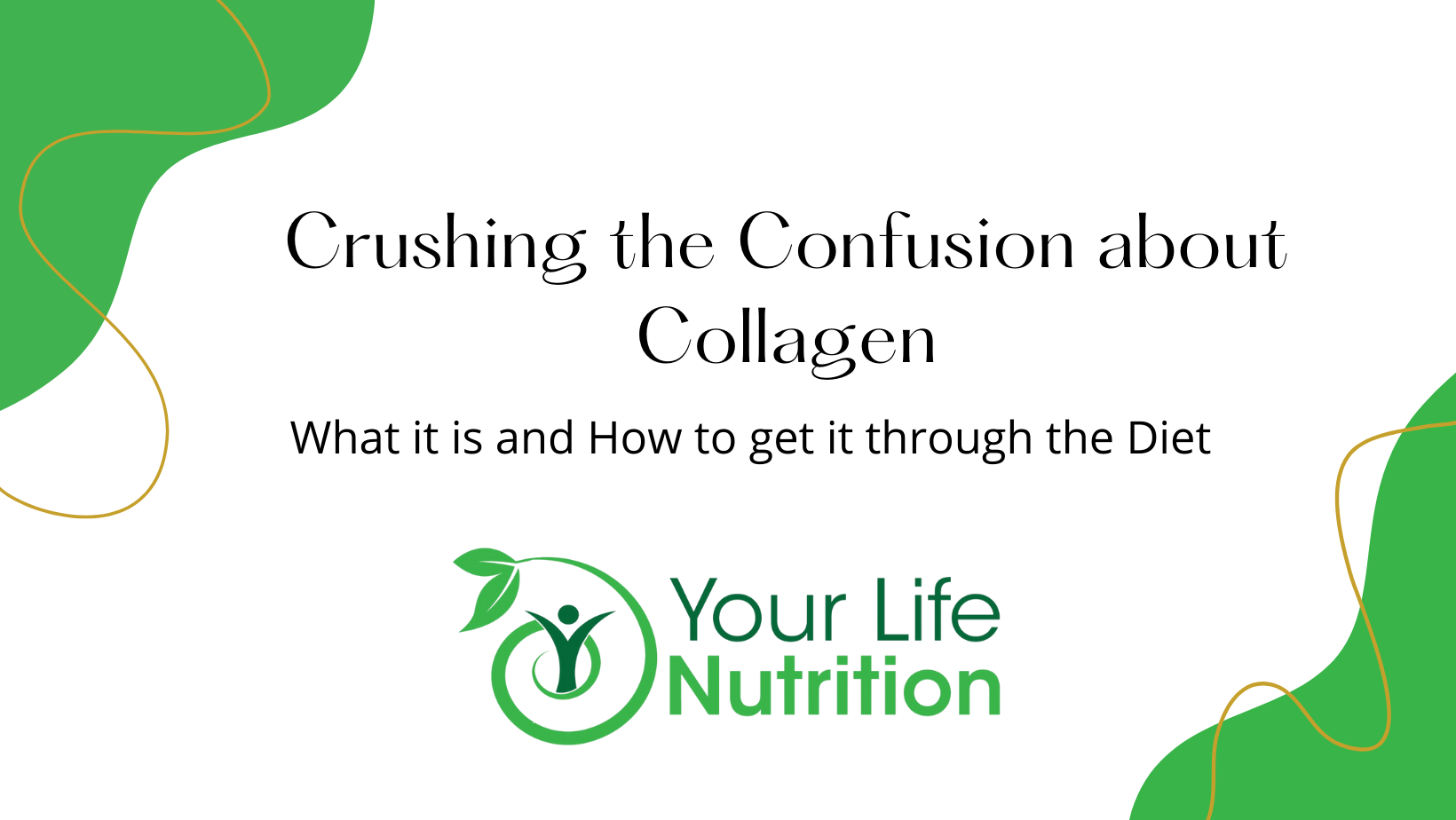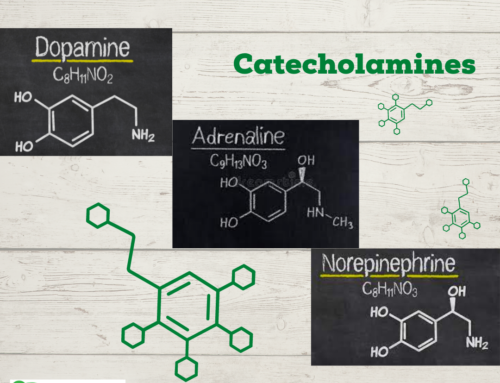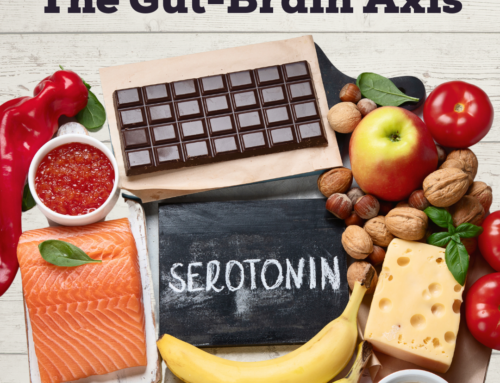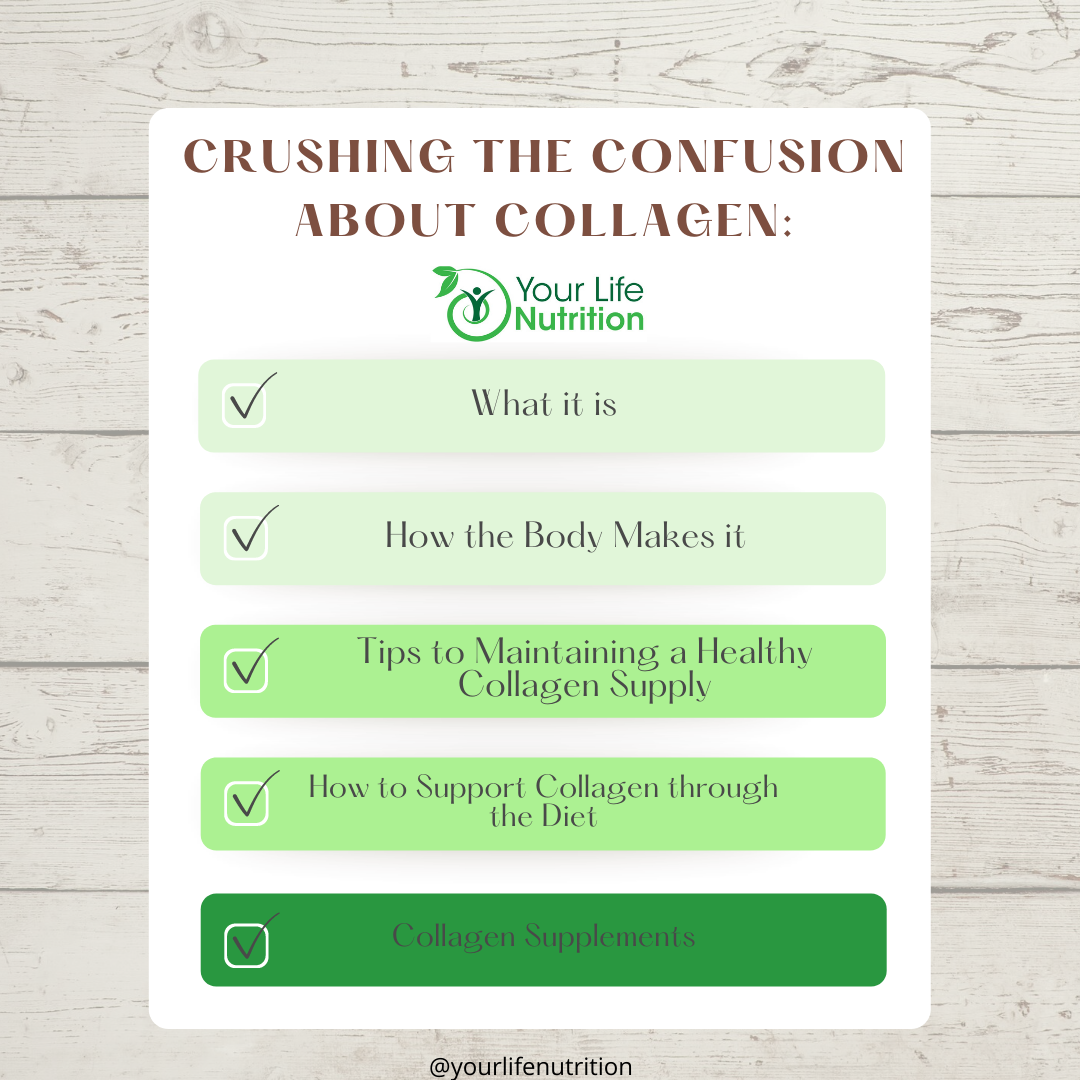
This morning, you probably woke up, maybe stretched and got out of bed, walked into the kitchen to make some coffee or tea, and possibly even had to descend a few flights of stairs in the process. Walking, moving, and stretching are so natural for most of us, but why is that? Have you ever wondered how your muscles, tendons, and cartilage stay strong and able to hold all of our bones together? The answer is collagen which is the most abundant protein found in the body and the major component of cartilage (that stuff between your bones acting like glue). Collagen also contributes to optimizing hair, nails, skin, joint, gut integrity, and immune health.1
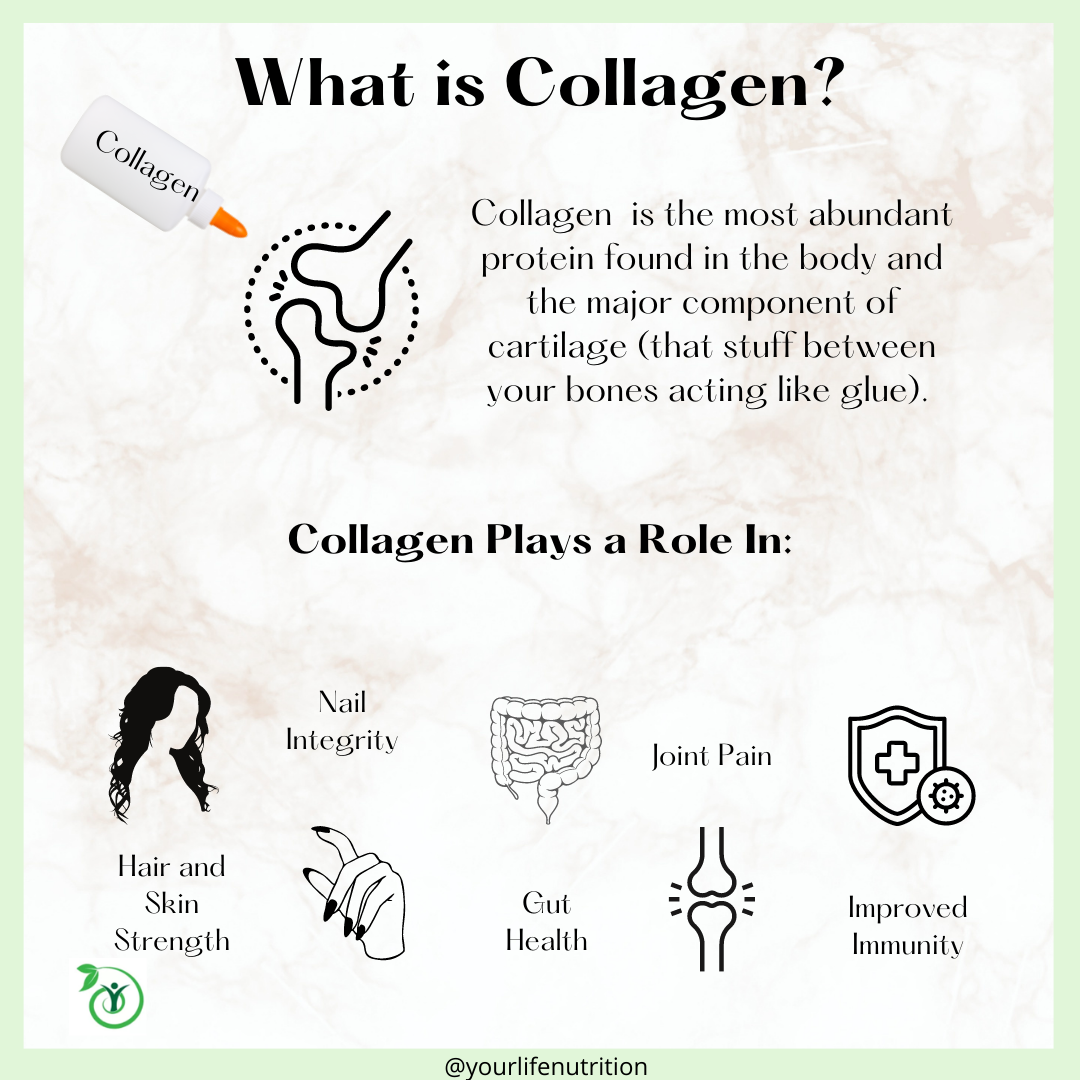
Collagen is naturally made in the body from amino acids which are the building blocks of proteins.1 When we eat foods like fish, chicken, beans, beef, and eggs we are eating loads of dietary protein which our bodies will break down into amino acids.1 These amino acids are then reconstructed in our bodies into various new proteins depending on which amino acids we have and what our body needs the most.1 One abundant protein it makes is collagen.
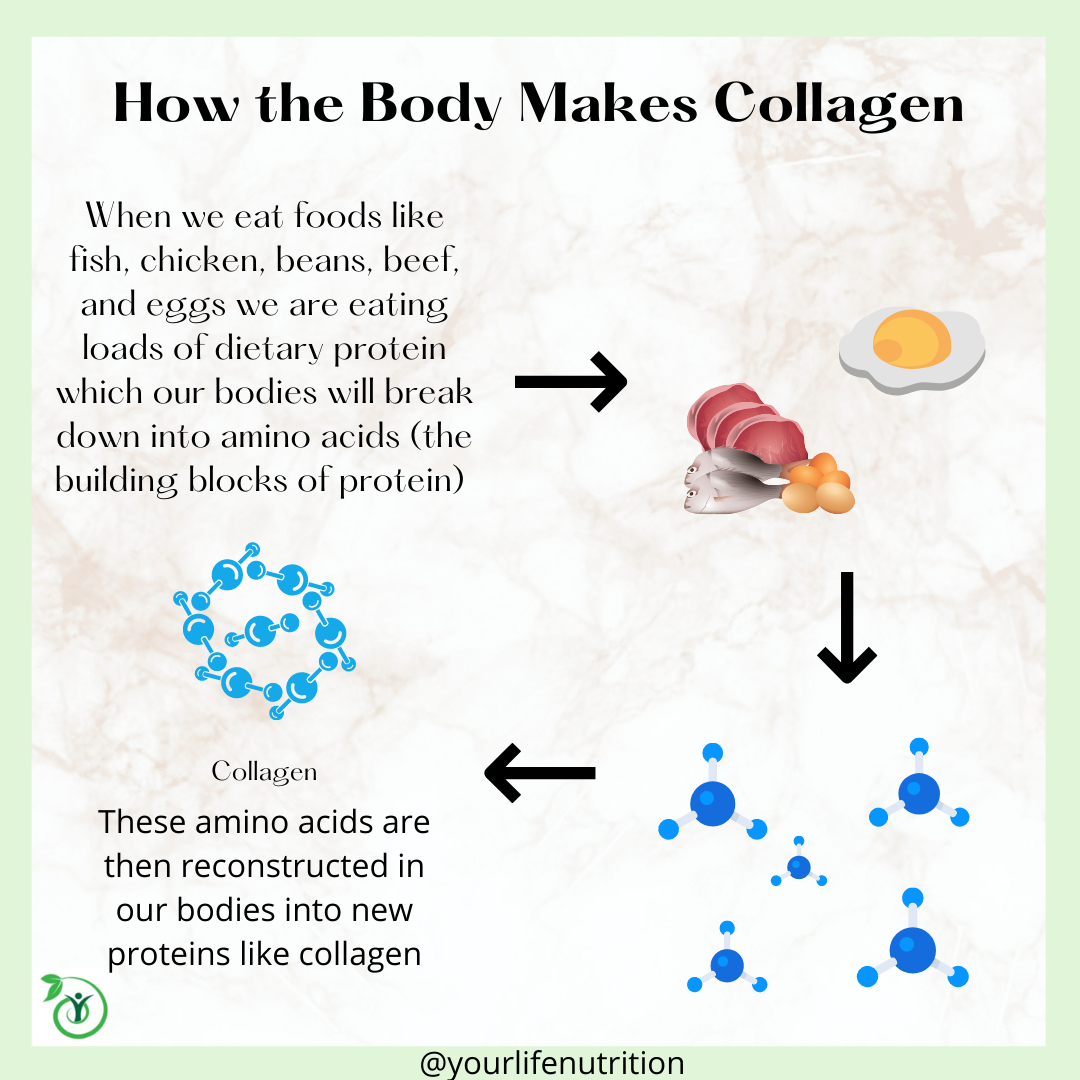
Now, building collagen is no one man job. Amino acids need a team of nutrients to accomplish this including vitamin C, zinc, and copper.1 We can find vitamin C in citrus fruits, berries, leafy greens, bell peppers, and tomatoes; zinc can be found in shellfish, legumes, meats, nuts, seeds, and whole grains; and copper in shellfish, nuts, organ meats, whole-grain products, chocolate, and seeds.1
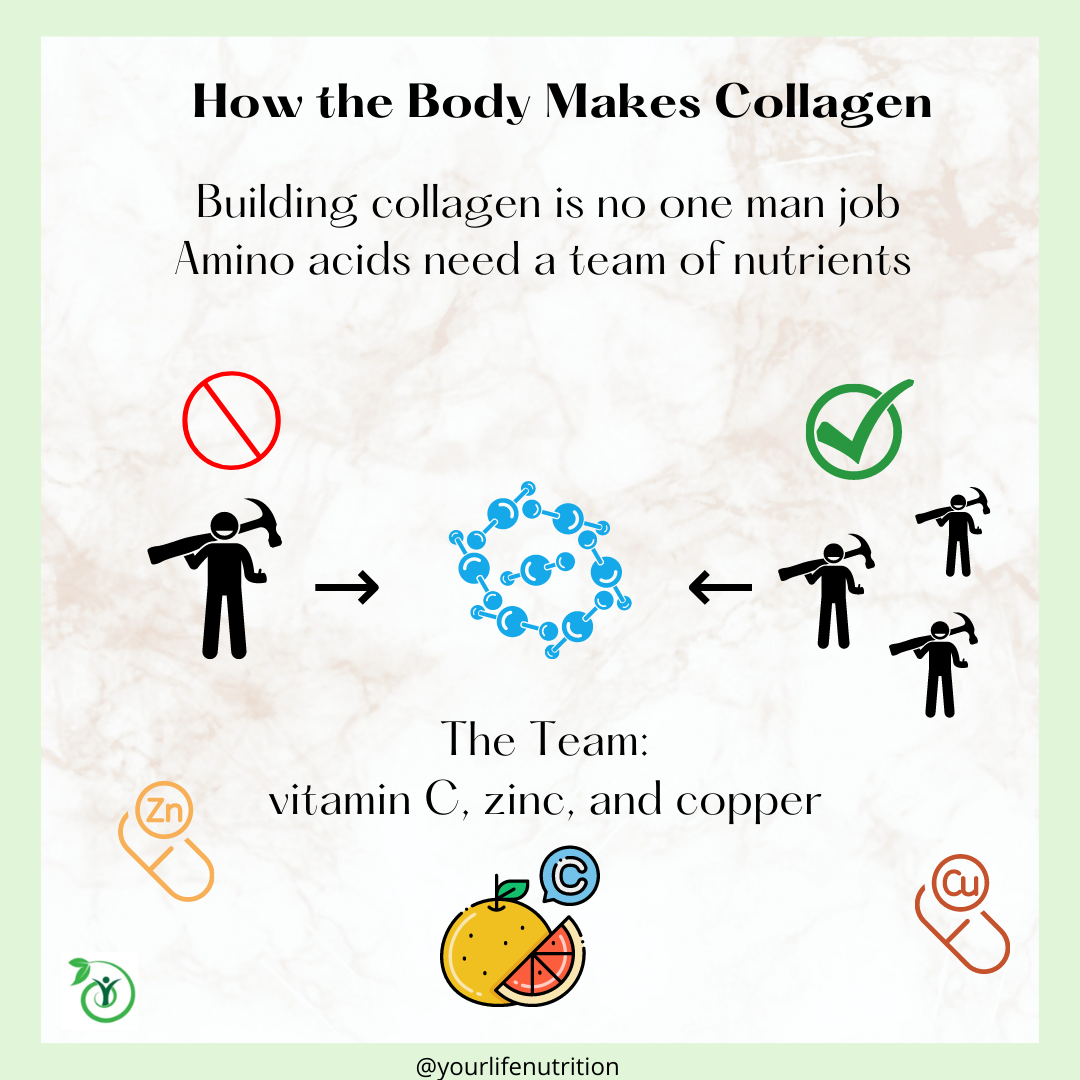
Some other great sources of protein are bone broth and collagen supplements made from hydrolyzed collagen (sold as collagen peptides).2 This is usually sold as a powder that can be dissolved in beverages (like hot coffee, tea, or cocoa), smoothies, soups, or sauces. If you are eating a diet rich in protein, vitamin C, zinc, and copper, you may not need a supplement, but it is a great and easy way to sneak in some extra protein if needed.2
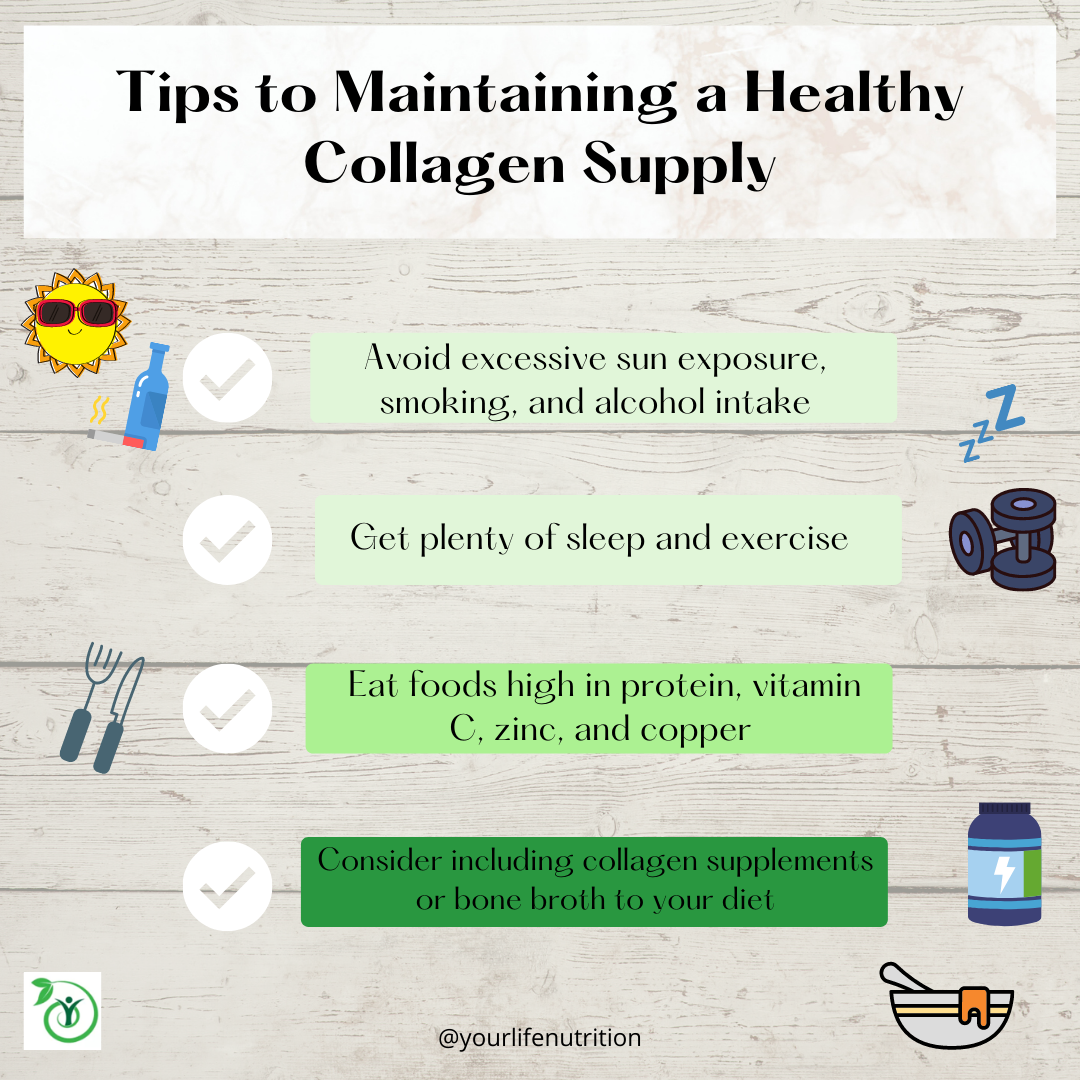
As we age, our bodies make less and less collagen.1 This is why we start to wrinkle, become stiffer, experience muscle weakening, joint pain, and have a thinner lining in the gastrointestinal tract.1 The main contributors, according to Harvard school of public health, to a lower production of collagen is sun exposure, smoking, excessive alcohol intake, and lack of sleep and exercise.1 This occurs due to the environmental exposure’s impact on the fiber network collagen constructs and makes it become more like a disassembled puzzle.1
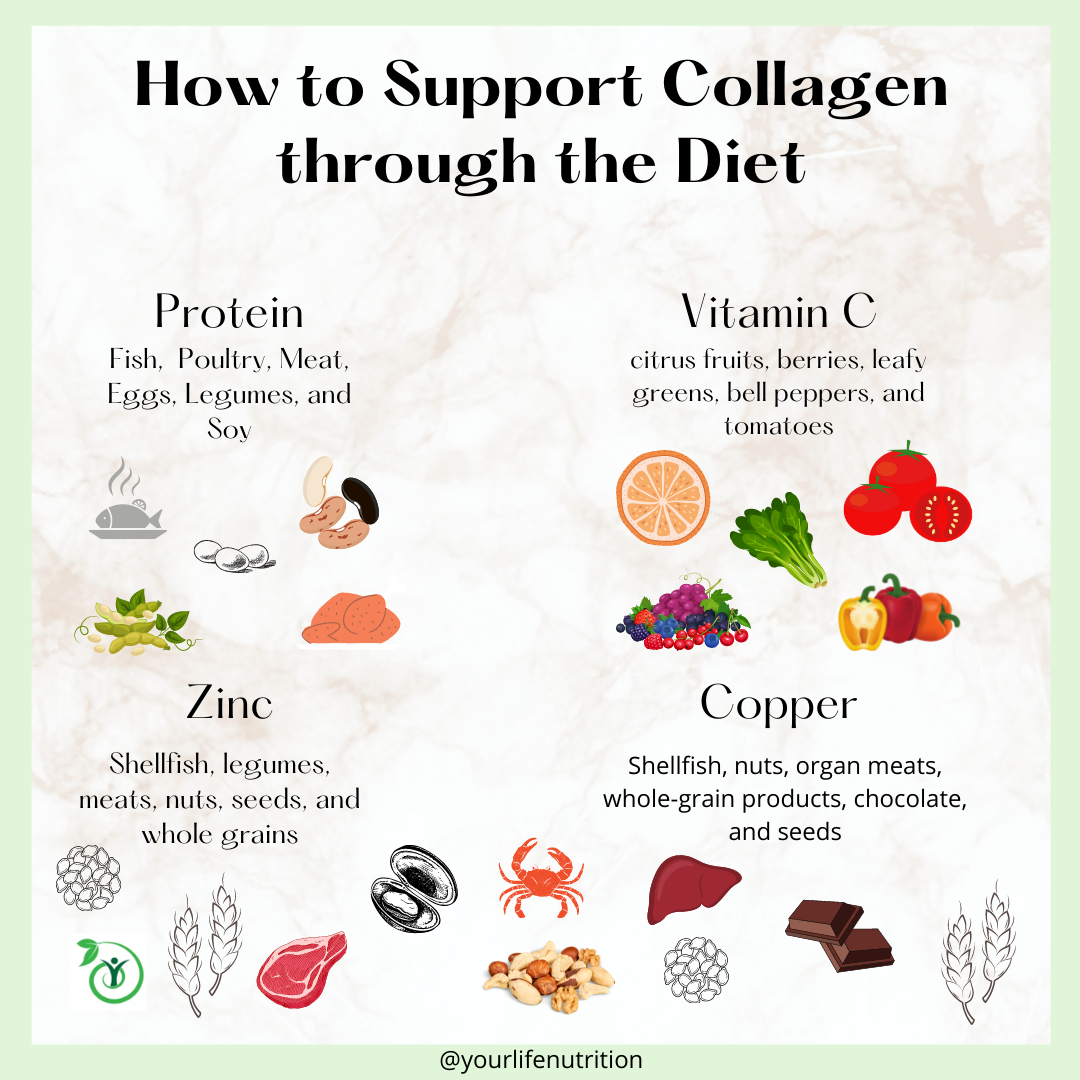
Taking collagen supplements may improve skin elasticity, hydration, and joint pain.1,2 Several peer-reviewed scientific articles that suggest there may be a benefit for short and medium term (3-6 months) joint pain, but no strong data for longer periods.3 In addition, there are have seen benefits for collagen peptide in postmenopausal women or those at risk for bone altered health, improved skin hydration and elasticity, but no solid data on heart health benefits, gut health, or improved muscle mass.3 The recommended collagen from scientific studies is from pork or fish derivatives but there is not enough research using cow derived collagen to make any conclusions.3 Something important to keep in mind is that most of the research on collagen supplementation is funded by the companies making the product and more research is needed to make a firm conclusion.1
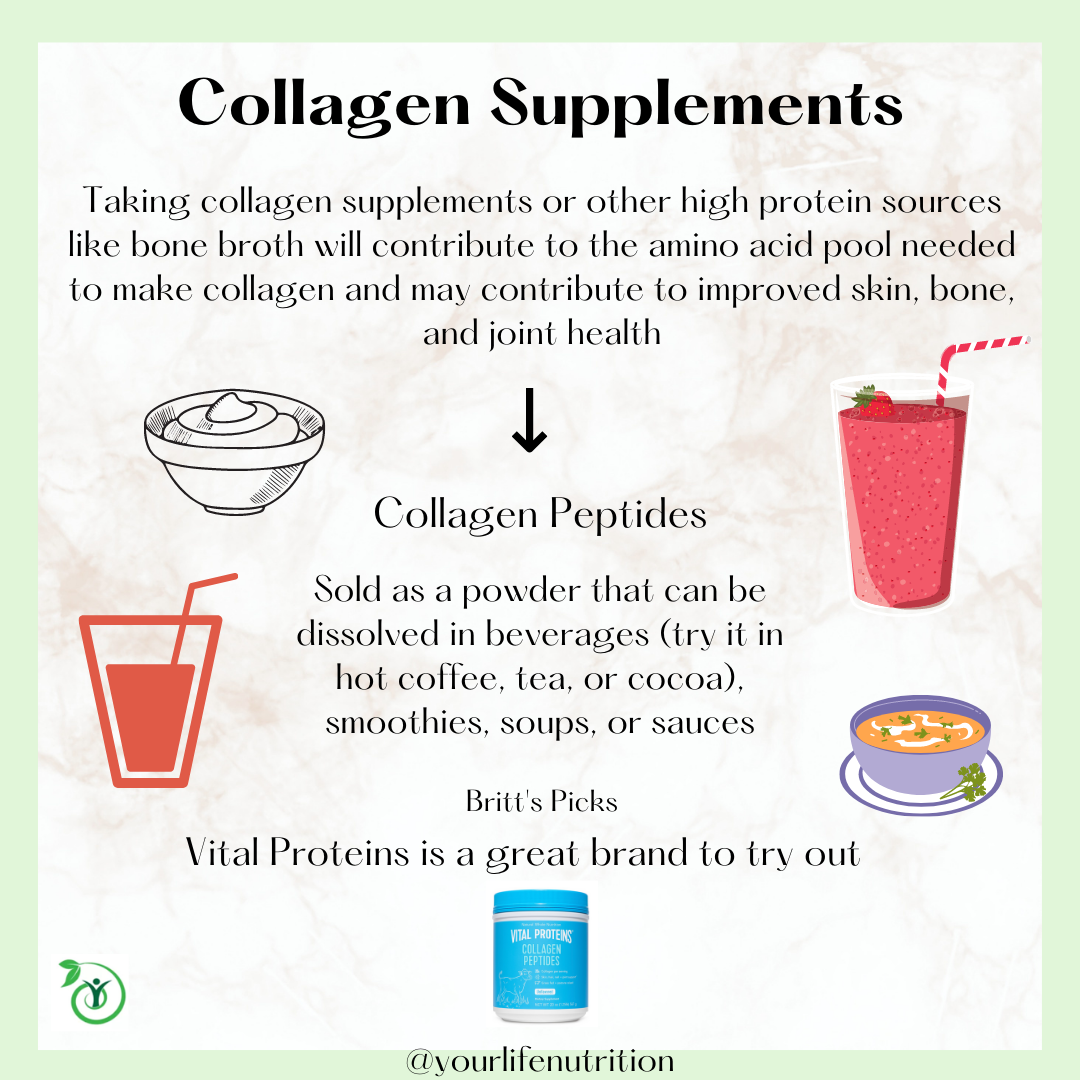
Now, you may be asking, “What should I do to maintain healthy cartilage and collagen production?” The best solution is food first. Eating those high protein foods, whole-grains, and loads of fruits and veggies containing vitamin C, zinc, and copper will help provide the body with necessary tools to make collagen.1,2 Also avoiding environmental strains on the collagen fiber network like smoking, excessive UV exposure, not getting adequate sleep and exercise, and excessive alcohol intake will help prolong production and keep your body strong.1,2 Taking collagen supplements or other high protein sources like bone broth will contribute to the amino acid pool needed to make collagen and may contribute to improved skin, bone, and joint health. Try adding some collagen peptides (like Vital Proteins Collagen Peptides) to your next hot coffee, cocoa, or tea and let us know what you think!
References:
- Collagen. The Nutrition Source. https://www.hsph.harvard.edu/nutritionsource/collagen/. Published December 17, 2021. Accessed January 15, 2022.
- The best way you can get more collagen. Cleveland Clinic. https://health.clevelandclinic.org/the-best-way-you-can-get-more-collagen/. Published December 10, 2021. Accessed January 15, 2022.
- Dell Children’s Medical Center of Central Texas. Christy T. Risinger, MD: Dell Children’s Medical Center of Central Texas. Dell Children’s Medical Center. https://www.dellchildrens.net/providers/bio/christy-risinger. Accessed January 15, 2022.
Post Written and Created by: Your Life Nutrition Intern, Michaela Campbell – Senior at the University of Akron, Majoring in Dietetics
